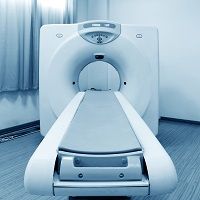Article
Association of PET with Changes in Management of Patients with Dementia, MCI
Author(s):
Investigators found significant changes in use of Alzheimer disease drug use, use of non-Alzheimer drug use, and counseling strategies among patients subsequent to amyloid PET.

A recent study has established an association between amyloid positron emission tomography (PET) and subsequent changes in the management of patients with mild cognitive impairment (MCI) or dementia of uncertain etiology.
After analysis of more than 11,000 patients, investigators found significant changes in use of Alzheimer disease drug use, use of non-Alzheimer drug use, and counseling strategies among patients subsequent to amyloid PET.
Investigators conducted the Imaging Dementia — Evidence for Amyloid Scanning (IDEAS) study, which was a single-group, multisite longitudinal study, to assess the link between amyloid PET and subsequent changes in the clinical management of Medicare beneficiaries with MCI or dementia. More than 16,000 patients registered but only 11,409 (71.3%) completed study procedures and were included in the analysis. The primary end point was change in management between the pre- and post-PET visits, as assessed by a composite outcome that included Alzheimer disease drug therapy, other drug therapy, and counseling about safety and future planning.
In total, the study included 946 dementia specialists and 343 different imaging centers between Feb. 2016 and Sept. 2017. Patient follow-ups continued through Jan. 2018. Specialists documented their diagnosis and management plan before PET and again 90 days after PET. The study was powered to detect a change of 30% or greater in the MCI and dementia groups.
Of the 11,409 patients, 6905 were diagnosed with MCI and 4504 had been diagnosed with dementia. Amyloid PET results were positive in 3817 patients with MCI and 3154 patients with dementia.
The most common change in management involved Alzheimer disease drug use, which changed in 43.6% of patients with MCI and 44.9% of patients with dementia. Changes in non-Alzheimer disease drug were reported in 22.9% of patients with MCI and 25.4% of patients with dementia. Changes in counseling were reported in 24.3% of patients with MCI and 20.7% of patients with dementia. Changes were more common in patients with positive PET results than negative.
The rate of Alzheimer disease diagnosis decreased from 71.5% pre-PET to 10.2% post-PET in patients with negative scan results, while Alzheimer disease diagnosis increased from 80.3% pre-PET to 95.5% post-PET in patients with a positive scan result.
Authors noted numerous, distinct limitations of this study. The nonrandomized design and lack of control group limited the direct attribution of changes in management to PET. Patients were included in the study based on criteria that “knowledge of PET results is expected to change diagnosis and management”, which means the threshold could have been set higher than 30%. The study does not directly compare the link between amyloid PET and changes in clinical management with management changes associated with other diagnostic tools. Based on third-party report, participants in the study were primarily non-Hispanic white and do not adequately reflect the racial and ethnic diversity of Medicare beneficiaries. Lastly, the relatively high rates of protocol noncompliance likely reflect the practice-based setting of the study.
Clifford Jack Jr, MD, professor of radiology at the Mayo Clinic, and Ronald Petersen, MD, PhD, professor of neurology at the Mayo Clinic, wrote an editorial regarding the IDEAS study. While the writers were optimistic of the findings, they pointed that several factors should be considered when analyzing findings of the study.
“Although the findings of the IDEAS study show that improved knowledge about etiology provided by amyloid PET, over and above current standards of clinical care, changes clinical management, there are important nuances to this broad conclusion,” Jack and Petersen wrote.
The study, “Association of Amyloid Positron Emission Tomography With Subsequent Change in Clinical Management Among Medicare Beneficiaries With Mild Cognitive Impairment or Dementia,” is published in the Journal of the American Medical Association.




